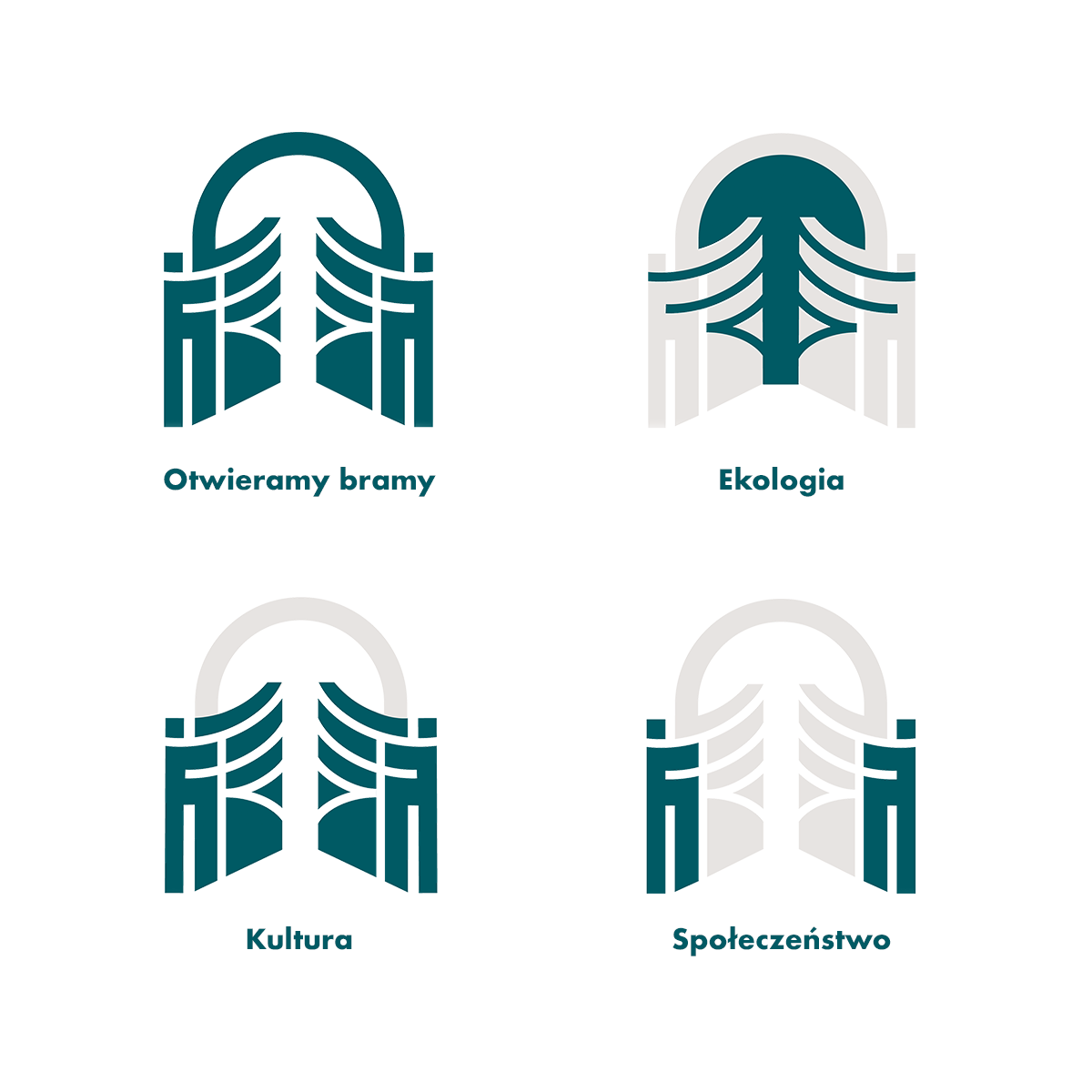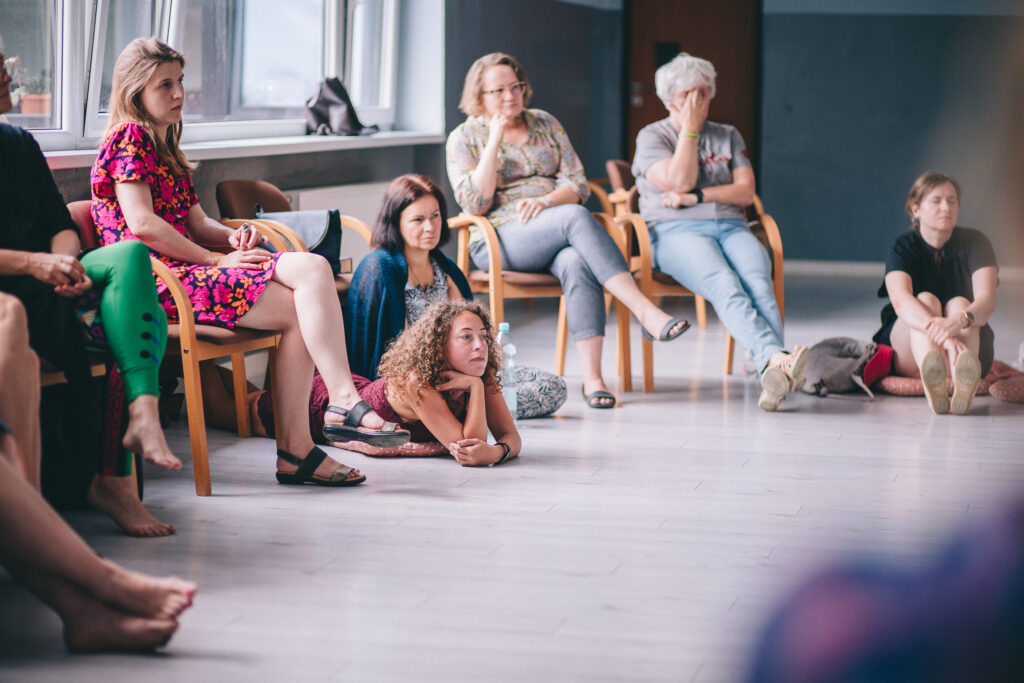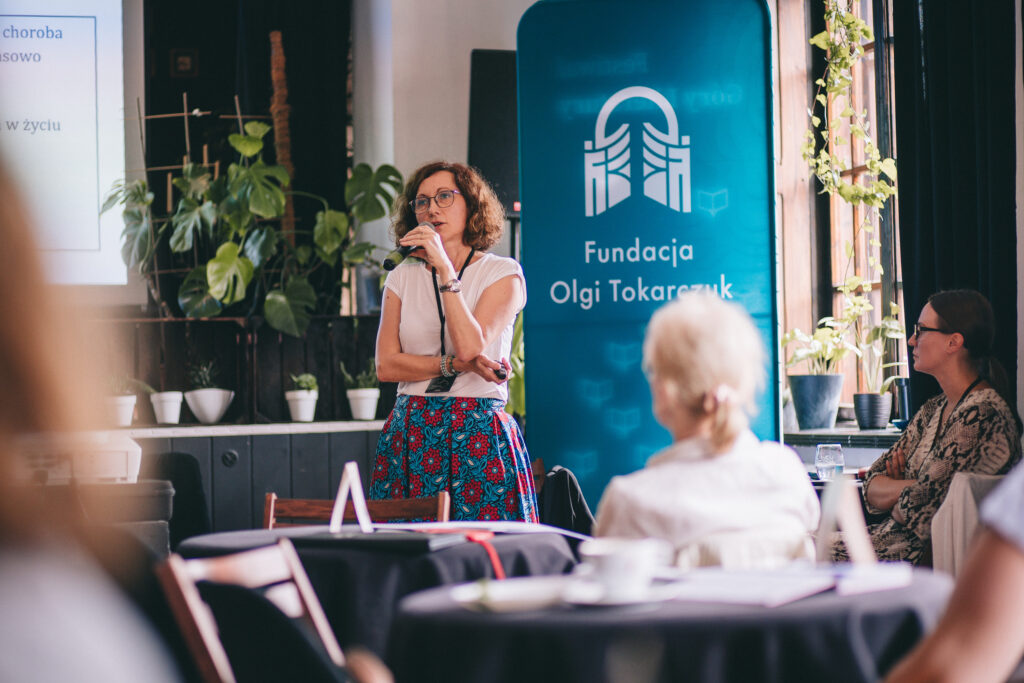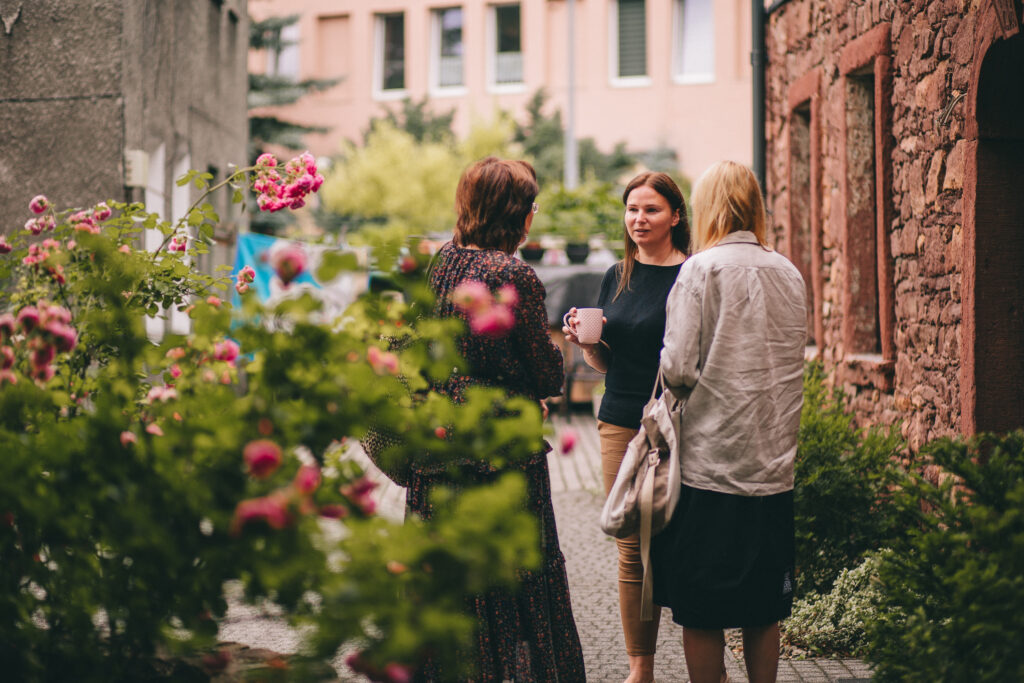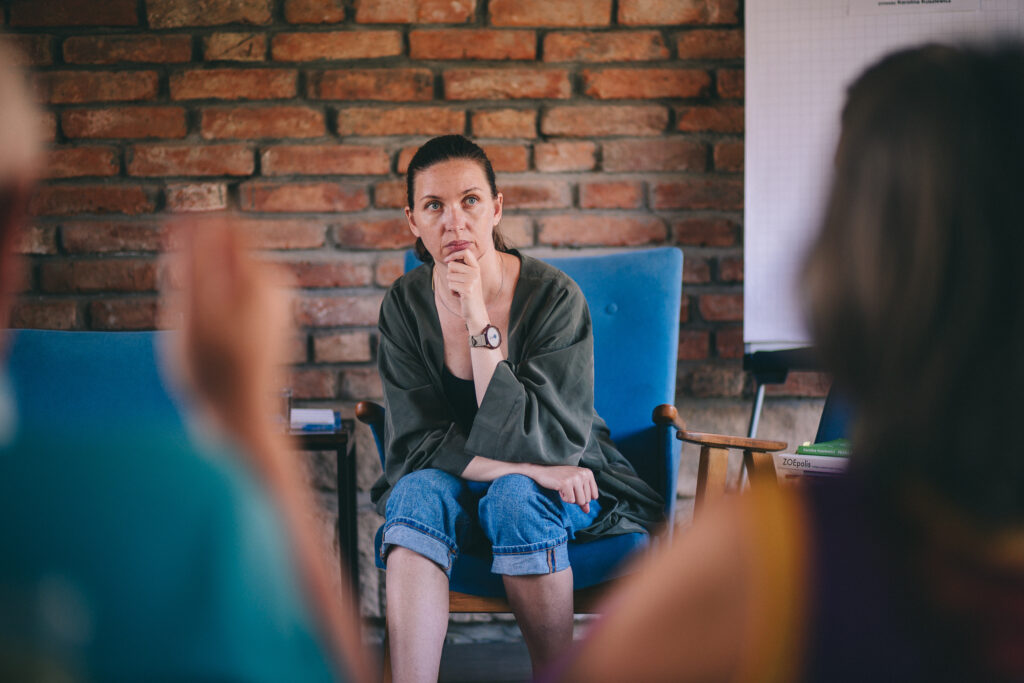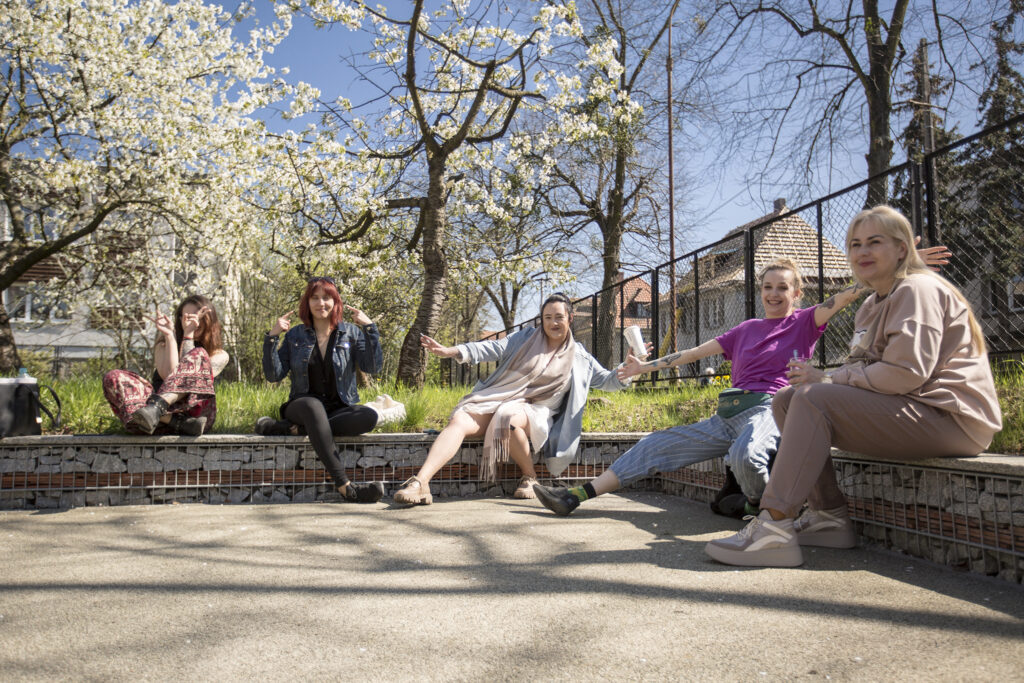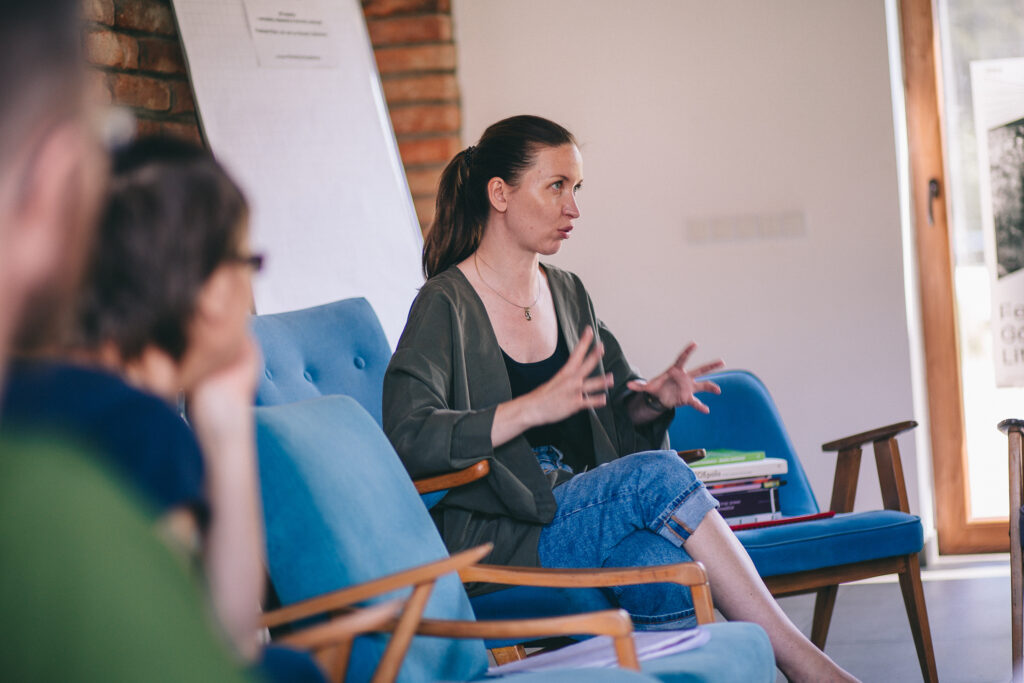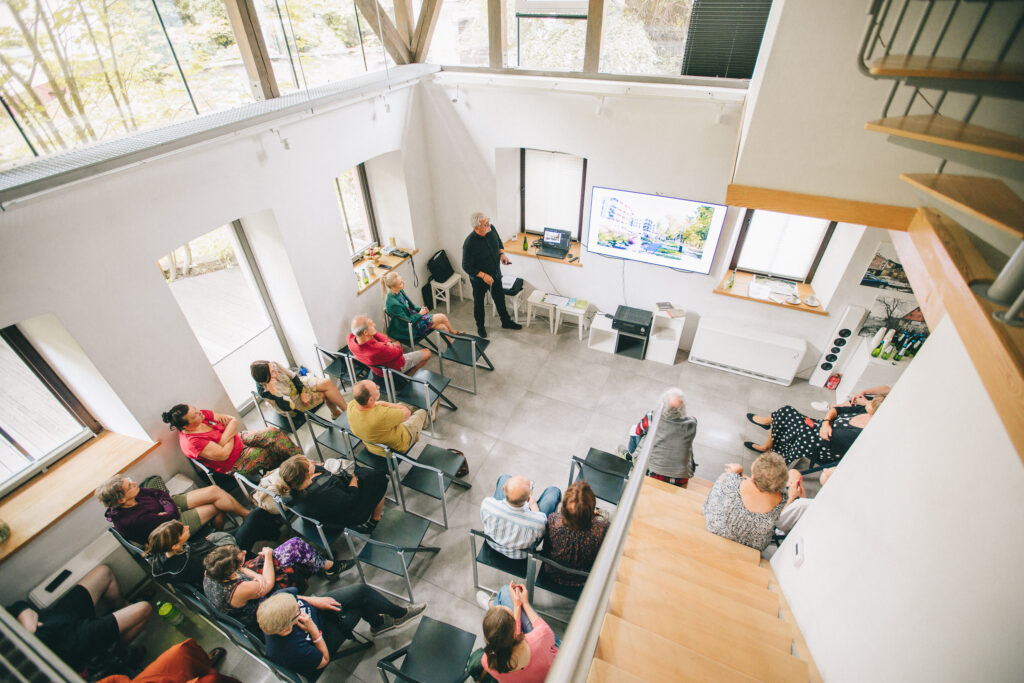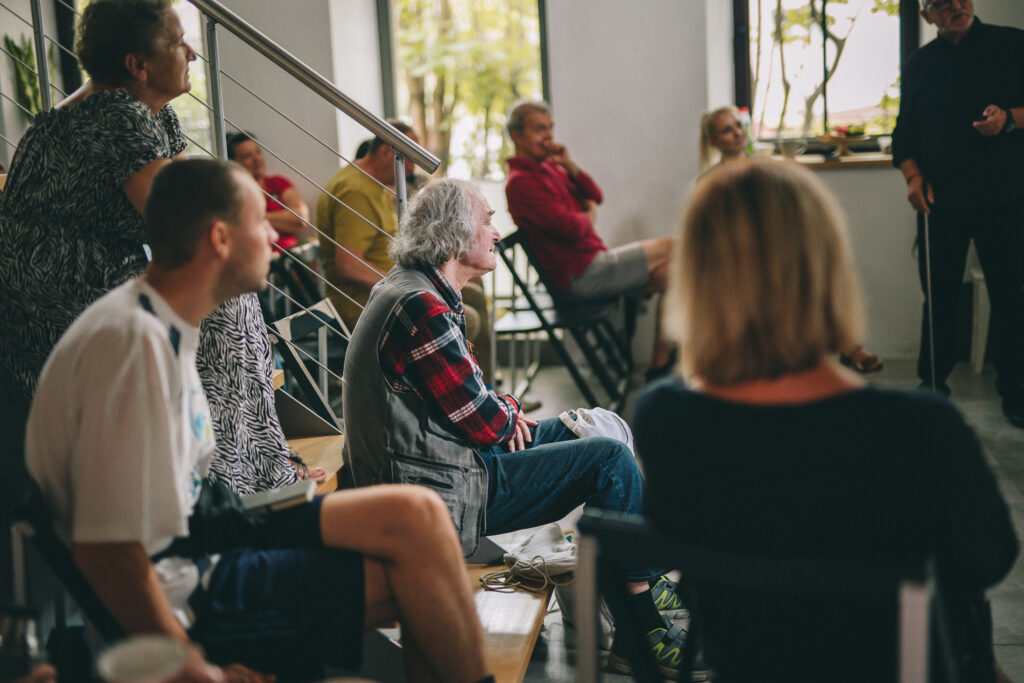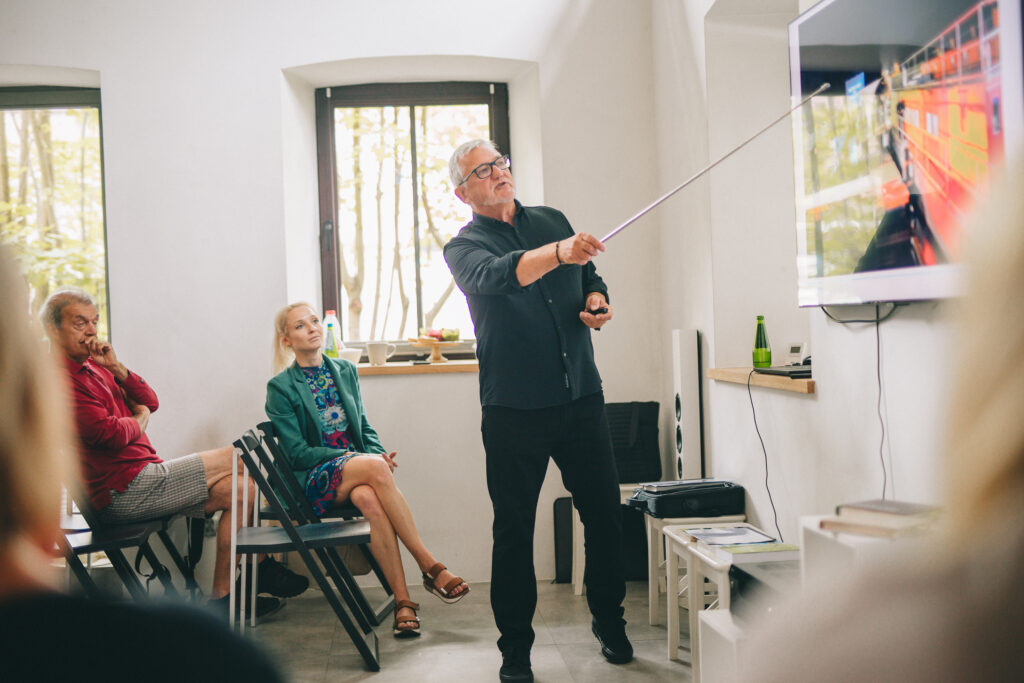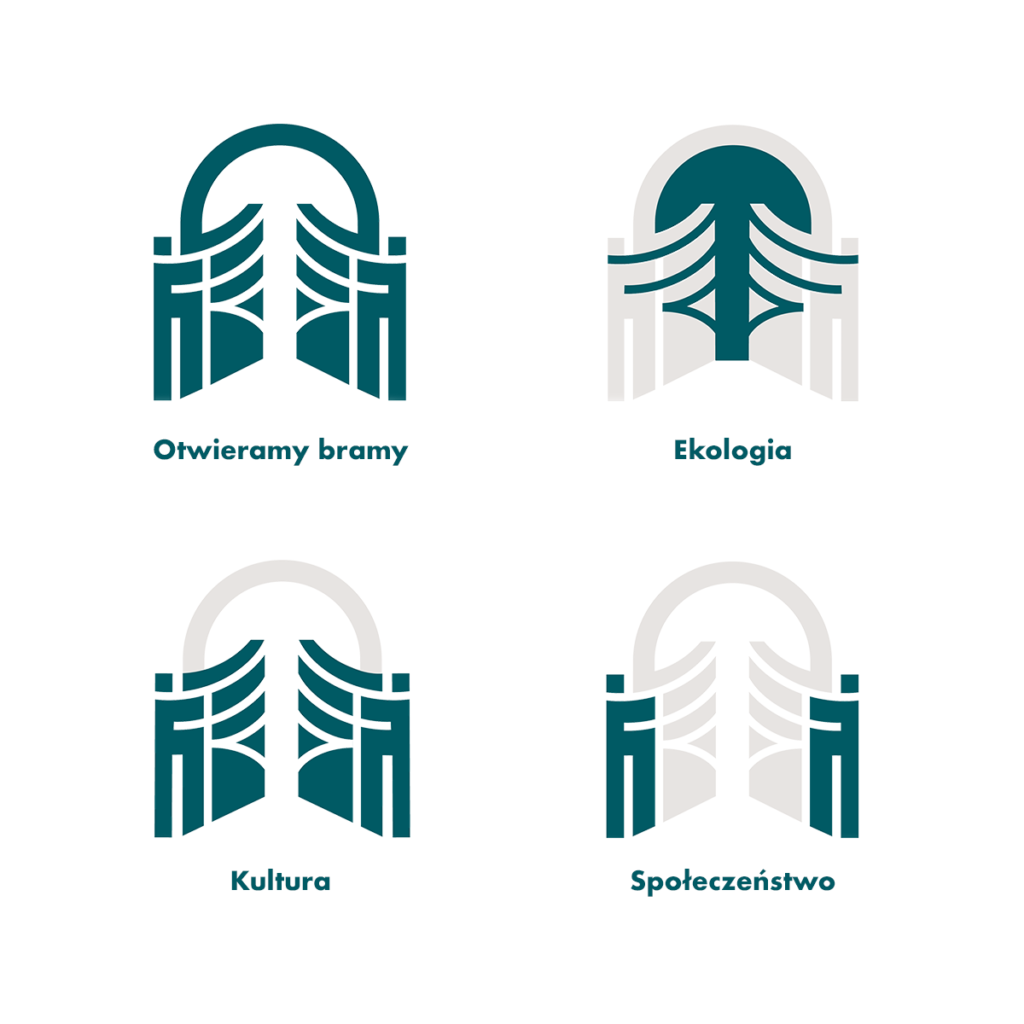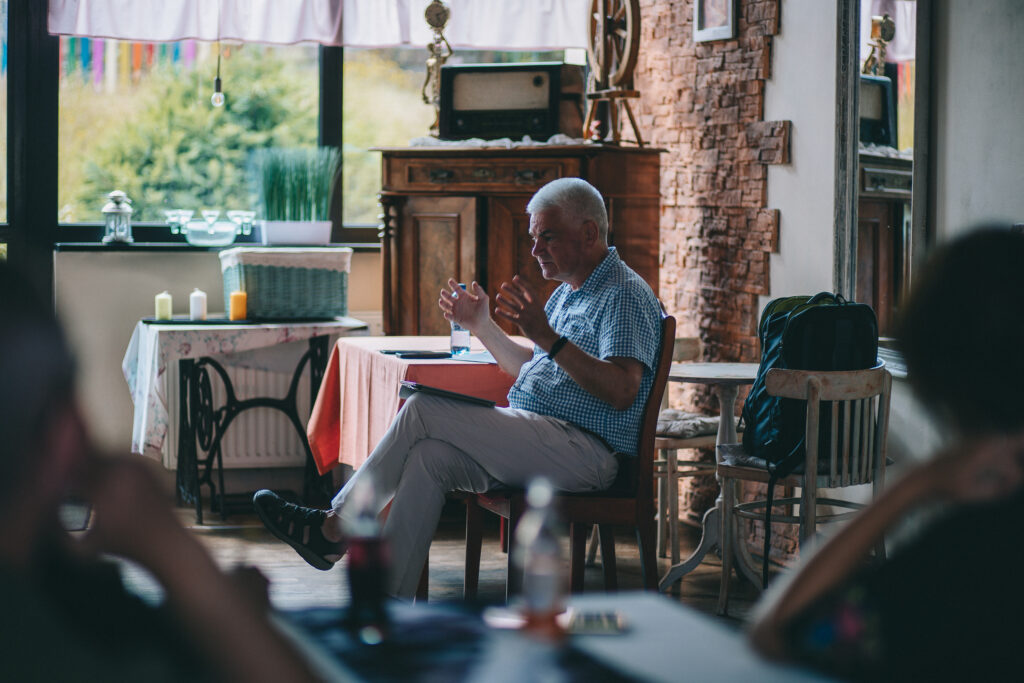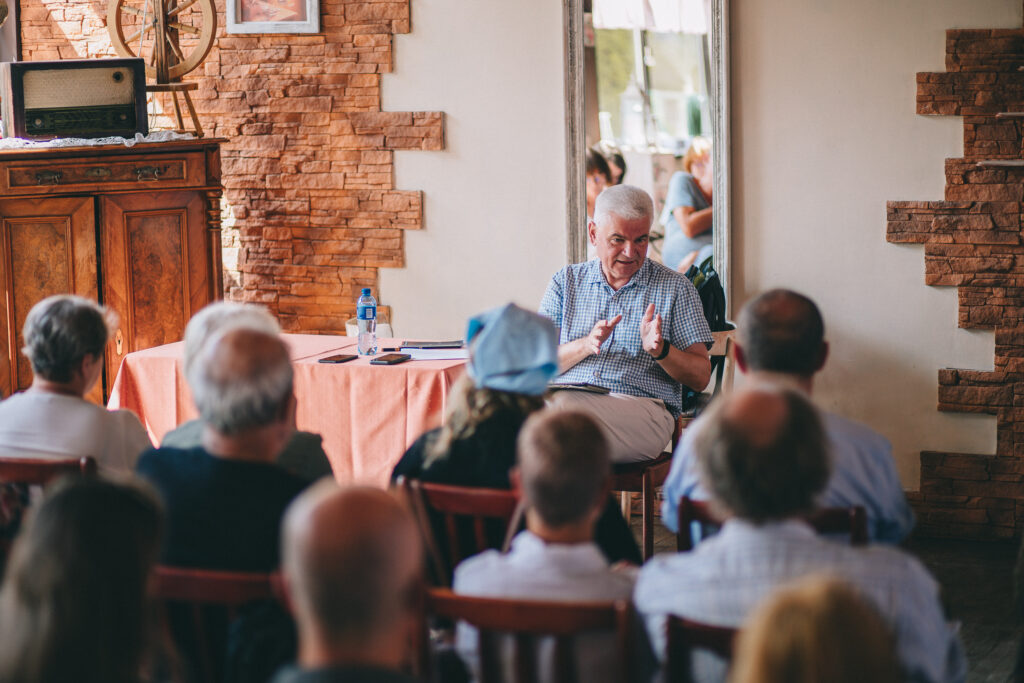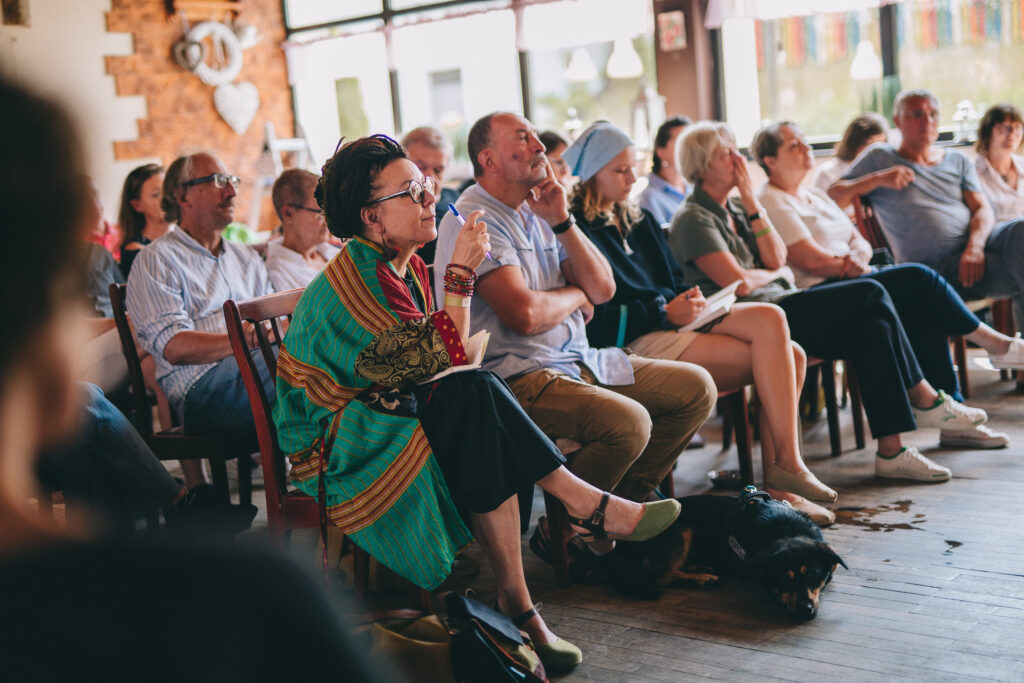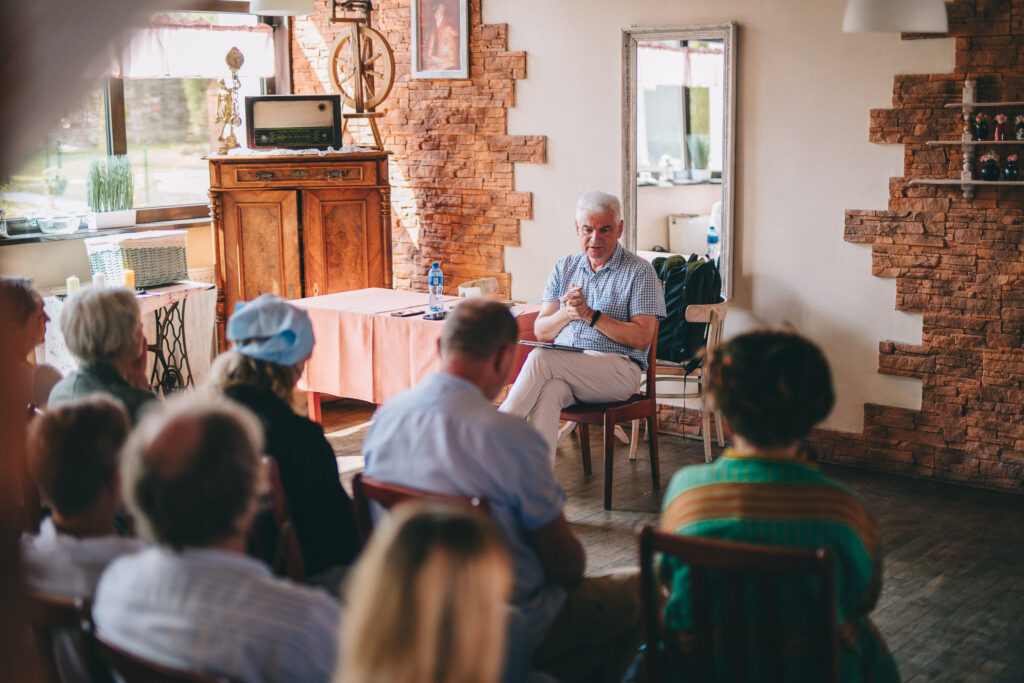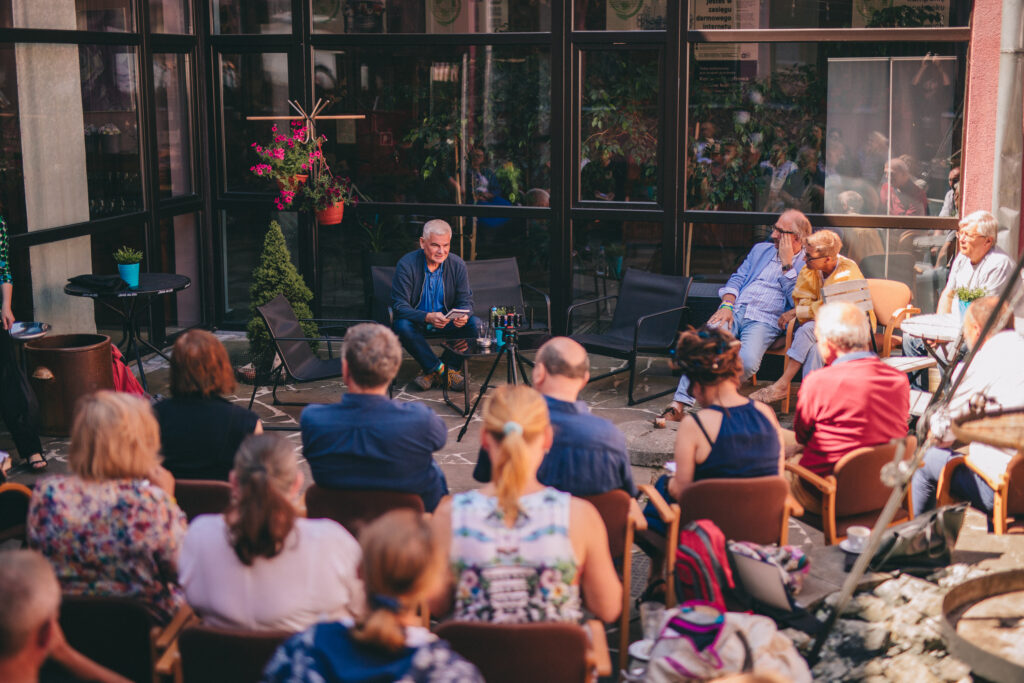Flying People’s University (FPU) is a series of seminars, workshops and classes accompanying the Mountains of Literature Festival (MLF), currently the biggest literary event in Poland, created in 2015 by the Nobel Prize winner Olga Tokarczuk and taking place in July, in small towns and villages of Kłodzko Land, and since this year also in Wałbrzych region and Wrocław metropolitan area. In 2023, MLF encompassed over 140 events, almost 20 locations, with the participation of almost 200 guests, the audience of 35 000 and 2100 000 viewers online, and was mentioned in the media over 1 700 times. In small towns, access to extracurricular education, which raises (in an attractive form) the awareness of the biggest threats to the present and possible solutions to growing social problems, is very limited. Schools, indoctrinated and ideologized, don’t provide opportunities for proper development and put young people, and often their parents, at a disadvantage in comparison with the residents of big cities.
That is why we decided to partially transform the Festival into a year-long cycle of educationalcultural-social classes and to reorganize FPU in such a way that it becomes a series of events taking place in schools, libraries, seats of local NGOs and cultural institutions.
The new approach to the development of the Festival will make it a culmination of a year-long work, will allow to sum up particular stages in the presence of a very large audience, so that MLF becomes a symbolic “end of the school year”.
We plan regular work with the youth and adults in the form of cyclic lessons, workshops and seminars, which will be developed and conducted by the most eminent experts in the field from Poland and abroad. What is more, the hybrid character of the classes will allow us to record key cycles and publish them online. There will also be an important artistic component to the project: at least once every three months, we’ll propose to the residents of the region a unique artistic event, related to topics discussed during lessons, workshops and seminars.
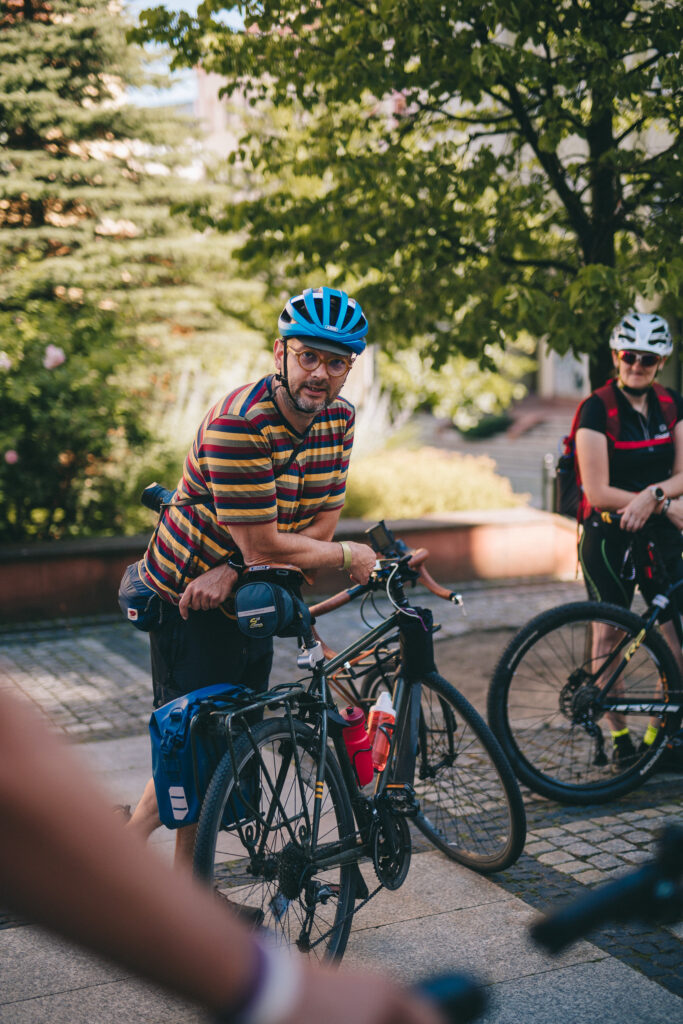
We will also propose classes to counteract the traditional tabooing of issues which are becoming
urgent social problems: lessons and workshops on hate speech, family classes on how to speak about sexual orientation, suicidology classes – if possible directed not only to those who are exposed to the most immediate danger, but also to entire families, local opinion leaders, as well as cultural managers and officials, and also neurodiversity workshops and seminars, touching upon the so far only flickering, but in the immediate future very important social problems, classes educating in finance, equality and the rule of law, as well as many others mentioned below.
The catalogue of topics we will propose to the Foundation partners and local partners, and then in part analyse and specify more precisely with them, is as follows:
- The climate disaster, ecology, environmental protection and ecocentrism,
- counteracting any kind of exclusion, including exclusion related to gender, origin, race, religion, discussing methods and ways of using language when talking about minorities (ethnic and sexual, among others) in the school and family environment, as well as in small local communities,
- hate speech, its sources, methods of prevention and counteraction, including recognizing the mechanisms of fake news, indoctrination, populism, demagogy and linguistic manipulation in everyday life, both in traditional and digital communication,
- the rule of law, including synthetic approach to the process of enacting laws and the consequences of ideologized or opportunistic changes in law for all citizens, work on systemic transformations in the area of equal rights for both women (including women’s rights) and nature (animals, rivers, landscape),
- freedom of speech, expression and art,
- culture and art as sources of civic freedom, their social-, urban- and state-creating role,
- transborder cooperation with a particular focus on European values and the character of the region,
- reading as the foundation of personal development of an individual, development of small communities and finally civilizational development, including the issue of literary translation as a model for intercultural communication,
- the idea of architectural and digital accessibility,
- economic and financial education,
- development and functioning of a civic society,
- the situation of refugees and methods of solving their problems in small local governments, as well as issues related to integration,
- factchecking and rectifying historical lies present in the current school curriculum and media, especially those concerning recent history – including the truth about the values of the European Union, as well as duties and privileges related to being its member,
- the analysis and counteracting suicidal risks, issues of neurodiversity, the help system and solving psychological problems of children and young people, counteracting violence within families.
Say It
The aim of the project „Say It” is to work with young people, parents, teachers and non-governmental organizations in the area of methods of communication, within families and at school, regarding children’s sexual orientation and the language we should use to talk about that subject.
Our project is an educational, cultural and social endeavour taking place in at least 9 towns and villages of the Lower Silesia region and consisting of two series of events. The first series are meetings with well-known artists and public persons, who will share stories of their own coming-out, getting ready for that gesture, shaping their own story, problems which have been and still are related to it. The aim of those meetings is not only to equip young people with the strength to make difficult decisions, not only to convince them that those gestures can mean success and freedom – they will also be a lesson in opposing the ripening rhetoric of hate, an exemplification of courage and the fight with censorship and self-censorship. Those meetings (in the form of lectures, meetings with authors, films screenings with discussions and talks, concerts accompanied by meetings with artists) will be open for the public, and the list of guests we plan to invite guarantees a large audience.
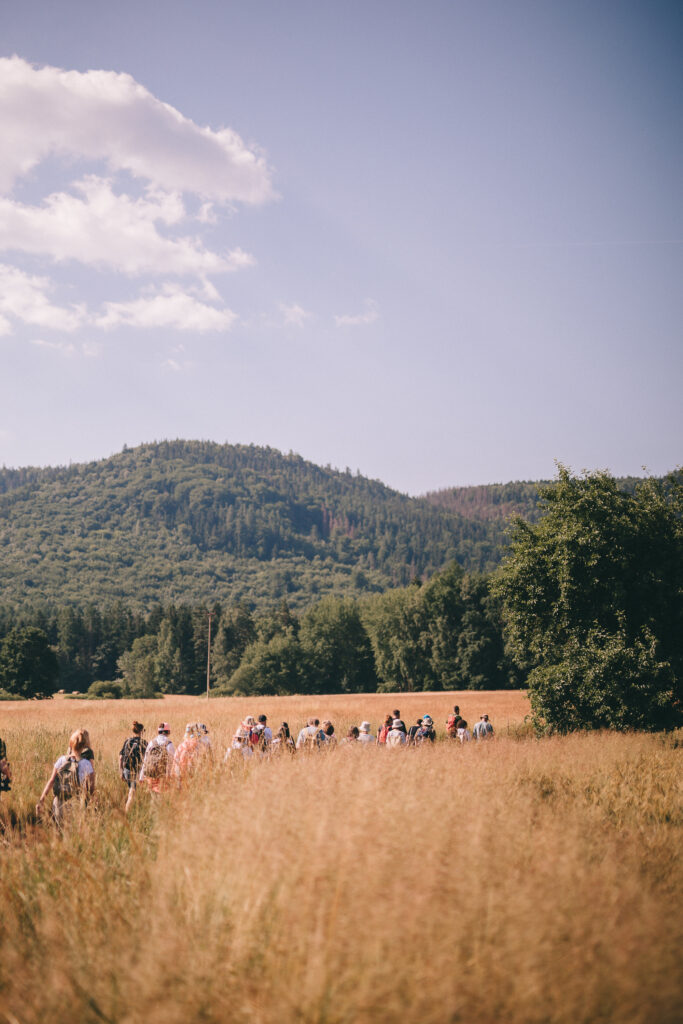
The other series of events within the project will be workshop-seminars. Their character will be more varied and individualized. Their aim is to work during workshops with parents, teachers and members of non-governmental organizations on the language which should be used when speaking about issues of homosexuality, both in intimate family surroundings and in public school situations. The workshops will be conducted by experts: social and family psychologists, linguists, scientists from other domains, artists and writers. Depending on the budget of the project, we might broaden those activities to include classes with young people interested in the topic as well as family workshops.
Residents of the Lower Silesian and Lubusz Voivodeships, and particularly those of Kłodzko Land and Wałbrzych region, have only recently begun to shape their local identity. For decades of an unstable political situation, settlers in the previously German lands lived from day to day, convinced of the possibility of changing the borders again. They were also constantly threatened – which reappears today in a grotesque form – with the return of the Germans. As a result, no long-term plans were made, there were no investments, no consistent and material creation of their place on the planet, and the most talented young people migrated to big cities. The collapse of heavy industry after 1989 resulted in further uncertainty and impoverishment of the region, it also limited the modest infrastructural resources, also in the area of culture and sport. We observe the consequences of those facts until today, especially in the area of still ailing education. One of the results is frequent tension between the younger and the older generation, the impossibility to find a common language, lack of communication and polarization of opinions, which is not the proverbial “teenage rebellion”, but which is radical, ideological and very emotional. Searching for and learning a shared language, based on respect for differences and an attempt to understand each other, is one of the greatest challenges of FPU.
